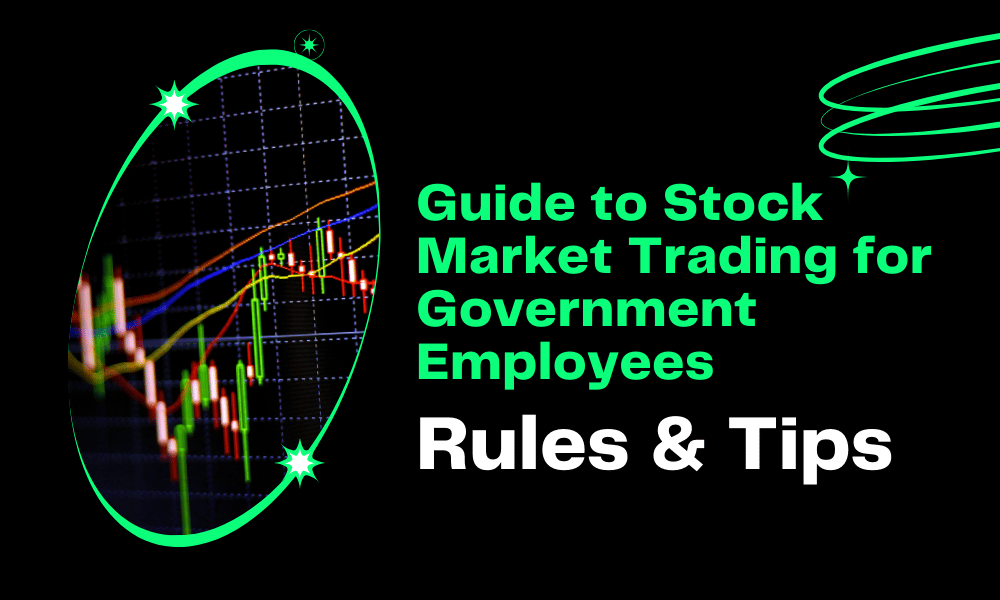Navigating the world of stock market trading can seem daunting, especially for government employees like me who must adhere to specific regulations and guidelines. However, I’ve found that with the right approach, it’s not only possible but incredibly rewarding. Investing in the stock market has offered me a fantastic avenue to grow my savings and understand financial markets better.
Through my journey, I’ve learned how crucial it is to be well-informed and cautious. Balancing my job responsibilities with trading isn’t always easy, but it’s definitely manageable with proper planning and strategy. This article aims to demystify stock market trading for government employees, offering insights into how we can safely navigate these waters while adhering to our unique set of rules.
Key Takeaways
- Adherence to Legal and Ethical Standards: Government employees must navigate stock market trading within strict legal boundaries, avoiding conflicts of interest and insider trading to maintain integrity and compliance.
- Strategic Investment Choices: Opting for long-term investments is more suitable for government employees due to less time required for daily market monitoring, aligning with the constraints of their job roles.
- Benefits of Diversification: Stock investments complement government pensions by providing financial security and diversifying income sources, which helps in managing risks and increasing potential returns.
- Importance of Education: Understanding key stock market concepts and terms is essential for making informed trading decisions that are both profitable and compliant with regulations.
- Choosing the Right Tools: Utilizing reliable brokerage accounts and efficient trading apps that comply with governmental standards can enhance trading effectiveness while ensuring transparency.
- Balancing Job and Trading Activities: Effective time management allows government employees to engage in stock trading without compromising their primary job responsibilities.
Understanding the Basics of Stock Market Trading
Navigating stock market trading can be quite a thrill. Here’s what I’ve learned about its core concepts.
What Is Stock Market Trading?
Stock market trading involves buying and selling shares to make profits. You can own shares directly or use derivatives like CFDs and spread bets. Direct ownership lets you get dividends and vote in company decisions. Derivatives let you bet on price moves without owning shares.
Key Terms Every Trader Should Know
Understanding key terms is crucial for successful trading. Shares represent ownership in a company. Dividends are profits shared with shareholders. CFDs allow you to speculate on share price movements, while spread betting involves predicting whether prices will rise or fall.
Legal Considerations for Government Employees
Navigating stock market trading as a government employee requires awareness of specific legal boundaries. I’ll share key considerations that have helped me trade responsibly.
Identifying Potential Conflict of Interest
I ensure my investments never conflict with my duties. This involves avoiding stocks in sectors I oversee or regulate. By doing so, I maintain integrity and comply with ethical standards set by my employer.
Understanding Insider Trading Laws
I’ve learnt the importance of steering clear from insider trading. Using non-public information to make trades is illegal. I always base my investment decisions on publicly available data, ensuring they’re lawful and transparent.
Benefits of Stock Market Trading for Government Employees
Investing in the stock market offers several advantages for government employees, complementing their stable but often limited government pensions and providing a pathway to greater financial security.
Supplementing Pension with Investments
I’ve found that investing in stocks helps boost my retirement fund. By choosing long-term, non-speculative stocks, I enhance my pension savings effectively. This approach not only prepares me for a comfortable retirement but also aligns with the investment rules set for government employees.
Financial Security and Diversification
Stock investments have allowed me to diversify beyond the traditional fixed-income assets typical of government pension plans. Diversifying my portfolio reduces risk and increases potential returns, giving me a more secure financial foundation as I navigate through different life stages.
Choosing the Right Trading Strategies
Navigating stock market trading as a government employee demands strategic planning to align with both financial goals and regulatory compliance. Here, I’ll share key strategies that have guided me successfully.
Long-Term vs Short-Term Investments
I’ve found long-term investments more suitable given my job’s constraints. These choices allow for gradual growth, minimizing daily market monitoring. In contrast, short-term investments often require constant attention and carry higher risks, which doesn’t suit my busy schedule or risk tolerance.
Risk Management Techniques
To safeguard my investments, I employ strict risk management techniques. Setting stop-loss orders helps me limit potential losses without needing to watch the market every minute. Diversifying across different sectors also spreads out my risks, ensuring no single bad investment can significantly impact my overall portfolio.
Recommended Platforms and Tools for Trading
Choosing the right platforms and tools can significantly enhance your trading efficiency. Here’s my take on the best options available.
Brokerage Accounts Suitable for Government Employees
I’ve found that certain brokerage accounts stand out for their robust security features and strict compliance with regulations, making them ideal for government employees like me. These platforms ensure that all transactions are transparent and in line with legal requirements, providing peace of mind alongside investment opportunities.
Essential Trading Apps and Software
Efficient trading hinges on using top-notch apps and software. I use applications that offer real-time market data, comprehensive analysis tools, and easy-to-navigate interfaces. These resources help me make informed decisions quickly, which is crucial given my busy schedule as a government employee.
Balancing Trading with Government Employment
Navigating stock market trading while adhering to government employment rules is crucial.
Managing Time Effectively
I prioritize my trading activities around my job schedule. I use early mornings and weekends for research and trading decisions. This routine ensures I never compromise my professional responsibilities.
Ethical Considerations and Transparency
I always ensure my trades are transparent and ethical. I avoid stocks in sectors I oversee, adhere strictly to insider trading laws, and report all transactions as required. This approach maintains integrity and compliance in my trading activities.
Conclusion
Navigating the stock market as a government employee requires a careful balance of knowledge, ethics, and strategy. Through my personal journey I’ve discovered that understanding the intricacies of trading while adhering to strict guidelines not only enhances financial security but also aligns with professional integrity. Whether you’re exploring long-term investments or diversifying your portfolio it’s crucial to stay informed and compliant. Remember effective time management and ethical practices are your best allies in ensuring that your trading activities complement your career without compromising your responsibilities. Here’s to making empowered and informed investment choices that pave the way for a financially secure future!




Leave A Comment
You must be logged in to post a comment.